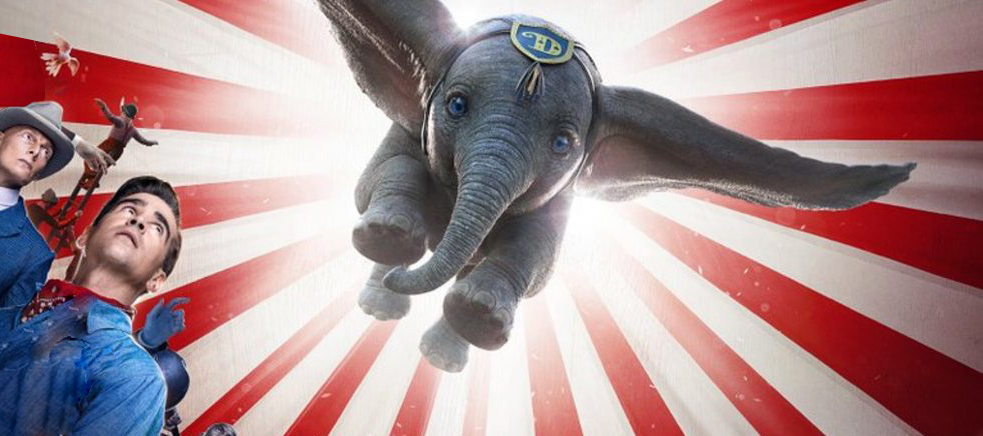TL;DR
Disney's live-action Dumbo remake, featuring a star-studded cast and director Tim Burton, sadly falls flat despite promising potential. While it attempts to expand the original's story, the film struggles with emotional connection, contrivances in its narrative, and a lack of belief in its own fantastical premise. Even strong performances from Danny DeVito can't salvage a weak script and questionable directorial choices, making it a disappointing adaptation. Discover why this retelling missed the mark by reading the full review.
The financial success of Disney’s Live-action remakes of animated classics is undeniable, with The Lion King exceeding a billion dollars in gross revenue and continuing to perform strongly. The Little Mermaid is slated next, suggesting the trend maintains its momentum. While The Lion King adheres closely to the source material, Dumbo (2019) functions as both a remake and a sequel.
The story begins in 1919, post-World War I. Holt Farrier (Colin Farrell), a war veteran, returns to his children, Milly (Nico Parker) and Joe (Finley Hobbins). His former role at Max Medici’s (Danny DeVito) circus is no longer viable, and he’s reassigned to elephant care. A unique elephant with disproportionately large ears is born, quickly revealing itself to be far from ordinary.
Unfortunately, Dumbo (2019) proved to be a significant disappointment. The initial trailer suggested considerable potential: the involvement of Michael Keaton, Danny DeVito, and Tim Burton, coupled with the promise of compelling visuals and imaginative storytelling, led to the expectation of a return to form for Burton. However, the final product was markedly underwhelming. The following analysis will detail the issues without excessive spoilers.
The original animated Dumbo, released in 1941 amidst wartime constraints, had a concise runtime of only 65 minutes. This brevity presents a challenge for a live-action adaptation. Dumbo (2019) addresses this by dedicating its first 45 minutes to re-telling the original plot, followed by an exploration of subsequent events. While the concept is interesting, the lack of emotional investment in Dumbo or the Farrier family undermines the narrative’s impact.
The film’s shortcomings manifest early. The scene where Holt Farrier returns from the war and reunites with his children feels tonally inconsistent. The children, grieving their mother’s recent death, have been anxiously awaiting their father’s return. Upon his arrival, they are visibly taken aback by his missing arm, reacting with apparent fear and distance. This response feels contrived. While Burton’s intent is understandable, the execution is unsuccessful. A more nuanced portrayal of the father’s character and the significance of his arm to his circus act could have justified the children’s reaction. This context is missing, leaving the audience to speculate.
The questionable choices continue. The film struggles to establish a connection with the titular character. Brief, jarring cuts to Dumbo’s perspective disrupt the narrative flow. Despite being the central figure, Dumbo receives insufficient screen time, overshadowed by the somewhat stilted performances of Nico Parker and Finley Hobbins. Their delivery lacks a sense of realism, further detracting from the film’s emotional impact.
All the animals are rendered via CGI, and while Dumbo possesses a certain charm with his large ears and eyes, his mother appears as a generic elephant. Their behavior is anthropomorphic, but the film fails to adequately establish the fantastical elements. The audience is expected to accept Dumbo’s ability to fly solely on the basis of ear-flapping, which stretches credibility. A more grounded explanation, or at least a hint of scientific possibility, would have been beneficial. The subsequent scenes of people riding Dumbo amplify the sense of absurdity, and the animation quality noticeably degrades. Furthermore, the scale of the human riders feels disproportionate, exacerbating the already difficult suspension of disbelief. Finally, the ethics of riding a baby elephant are questionable.
Danny DeVito’s performance is a notable highlight, contributing both nuance and humor. The reunion of DeVito and Michael Keaton, 27 years after Batman Returns, is a welcome touch. However, Keaton’s character is poorly conceived, motivated by nonsensical script directives rather than genuine villainy. Colin Farrell is similarly constrained, delivering a competent performance within the confines of a flawed script, ultimately becoming another casualty of what may be one of Disney’s weakest adaptations.
The Blu-ray edition offers acceptable picture quality, albeit with slight softness and suboptimal black levels (with HDR enabled on UHD). The colors are vibrant, providing adequate depth and luminosity. The audio presentation, however, is primarily focused on the front channels, offering limited surround sound immersion. The extras are adequate, with some redeeming qualities until Tim Burton’s questionable praise of a less-than-stellar performance. Deleted scenes and a blooper reel are also included.
The disappointment surrounding Dumbo (2019) stems from the unrealized potential. What was anticipated to be an emotionally resonant film devolved into a project plagued by a weak script, miscasting choices, and a seemingly disengaged director. The result is a disjointed and underwhelming experience. The following clip exemplifies the film’s editing deficiencies and the overall stretching of available material.
In conclusion, while Danny DeVito’s presence provides some entertainment value, this live-action remake ultimately fails to capture the magic of the original, suggesting that certain stories are best left untouched.
